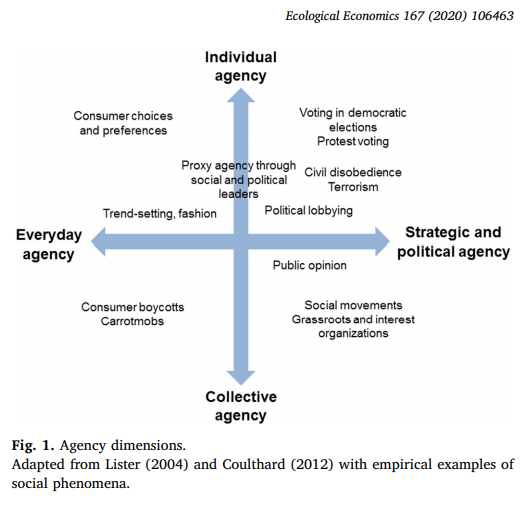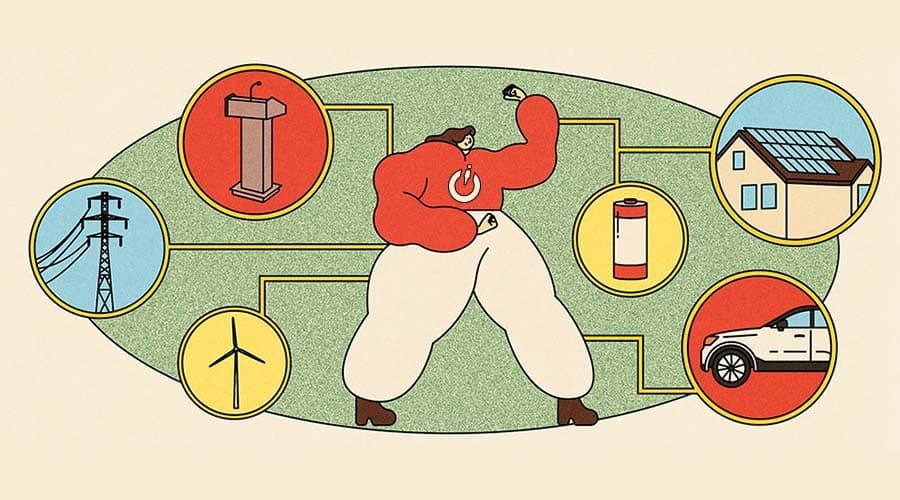The U.N. released their latest climate report on Monday—and, not surprisingly, it is alarming news. The U.N. Secretary General summarized it as “a code red for humanity.”
This is the moment—this decade-long window of opportunity—in which we find ourselves, like it or not. While other actors (read: the fossil fuel industry) bear the greatest blame, this is the moment you—as an individual, parent, community member, employee, citizen, constituent, and member of the human race—find yourself in. What should you do? What can you do? Is it too late? Is it all up to the government?
Thankfully, it’s not too late—the report makes that clear. There is a safer future within our grasp. As climate scientist Allison Crimmins (who heads up the U.S.’s own national climate reports) said on Monday, “Every additional bit of warming is going to lead to additional impacts that affect…all of the things we care about in the U.S. And on the flip side of that, every action counts to avoid those impacts. So every bit of temperature, every tenth of a degree that we can avoid is going to be better. Every single action matters. Every year matters.”
So what we do now matters a great deal. The good news is that we have the solutions in hand and can seize this opportunity to transform our energy system, our economy, and our future.
It is our moral responsibility, our privilege, and our opportunity to act.
“Every bit of temperature, every tenth of a degree that we can avoid is going to be better. Every single action matters. Every year matters.”
So let’s talk about action. Here’s a helpful chart (h/t researcher Steve Westlake) showing all the different forms of “human agency”—and individuals fit into every category:

Charts like this help make it clear that your efforts, your decisions, and your voice all matter. To put it more simply: your energy matters. So let’s dig into some concrete actions you can take. Here are five to consider:
Five worthwhile actions you can take
- Put pressure on your local, state, and federal elected officials: With the $3.5T budget reconciliation package on the table on Capitol Hill, the window of opportunity is now, the cost of inaction is unacceptable, and the economics are on the side of clean, renewable energy. Be a clean energy voter/constituent and show your support for impactful policies that match the scale of the crisis facing us. Don’t like to be political? Unfortunately, we need rapid, massive system-level change, so it’s time to get involved in the system. The most important opportunity we have is with the upcoming budget reconciliation package. As journalist David Roberts puts it, “this is America’s last chance at serious nationwide climate action for a decade.” More to come on this, stay tuned.
- Take significant action at home; then evangelize: Two of the most high-impact steps you can take right now are going solar and driving electric. Explore whether rooftop solar is right for your home; if you rent or live in an apartment, explore community solar here or here. In the market for a car? Check out the new and used EV markets. Not in the market? Pledge to make your next vehicle an EV. Already joined the solar and EV revolution? SPREAD. THE. WORD. Help your family, friends and neighbors go solar or buy electric, and advocate for clean energy on your city buildings and schools.
- Dig into the action underway in your city, state or region: What climate commitments have been made? How is energy generated in your state? What is the deal with your utility’s clean energy offerings? What’s the deal with FERC? Write letters to your local papers, to city council, and join local and state clean energy and environmental groups to learn more about how to engage and put pressure on your utility, your city council, your school board, etc.
- Put your dollars to work: Our financial system has a massive role to play in accelerating a clean energy future. Tell your bank to divest; tell your stock broker you want ESG funds, tell your university to divest (or thank them if they have already), and don’t support businesses that funnel money to politicians that aren’t helping address the crisis.
- Show your support visually: Get your hands on t-shirts, flags, signs, banners, and stickers—and get your friends on board too. The behavioral science shows that your sphere of influence is greater than you might realize; social pressure, cues, and expectations matter.
We’ll hand the mic back to climate scientist Allison Crimmins for a conclusion we’d be hard-pressed to improve upon: “I see the sort of transformations that are required to reach these numbers as something I’m excited for and look forward to. I think we can hit these sort of emission targets and transform our energy system, transform the way we use energy and the way we get around, our transportation, the way we run our homes. And I think we can do that while also making a safer, healthier, more just future…I don’t see these as restrictions that we are burdened with if we want to meet some sort of deadline. I see these as an exciting opportunity for a more perfect union, a better U.S. and a healthier life for everyone.”
Your energy matters, your voice matters, your vote matters.















